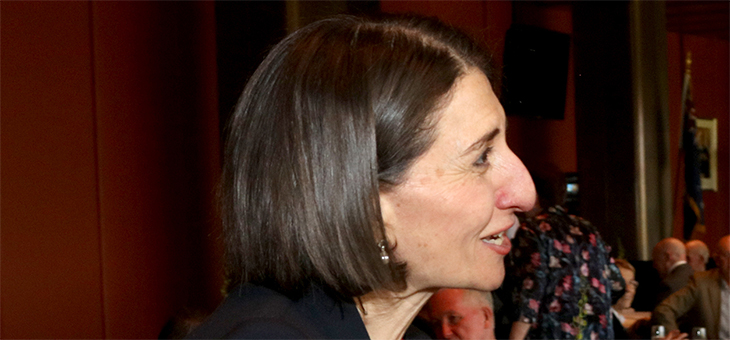The NSW government’s reluctance to enter lockdown last week has put the rest of the country at risk, say epidemiologists.
Prior to the last week, NSW Premier Gladys Berejiklian had been critical of other states and territories that had chosen lockdowns as a way to get on top of outbreaks and protect the rest of the country from infection.
When COVID broke out in Sydney a little over a week ago, the NSW Premier backed her original criticisms and took a ‘trust the people to do the right thing’ approach.
She has now changed her tune, on Saturday announcing a two-week lockdown that will last until at least 9 July. She said there was “no point” locking down for a few days to help contact tracers to get ahead of the virus.
“Given how transmissible the virus is, given the extra exposure venues, we know that even the best contact tracers in the world can’t stay a step ahead unless we put this in and we need to do it properly,” she said.
Now, thousands of people around the nation have gone into isolation due to fears they have come into contact with the highly infectious Delta strain responsible for the Sydney outbreak.
The virus has spread from Sydney to Victoria, Queensland, Western Australia the Northern Territory.
And there are concerns an infectious Virgin Airline steward who flew in and out of multiple states may spread the virus further.
Even Ms Berejiklian has conceded that we will see more cases linked to the Sydney outbreak across Australia in coming days.
Read more: Can you test negative but still transmit COVID-19 to others?
Given the failure of this change of tack, epidemiologists are now demanding a national approach to the pandemic.
NSW’s reluctance to lock down has jeopardised the work of the rest of the country, which epidemiologist Mary-Louise McLaws says is now “at risk” after another positive case linked to the outbreak was recorded in Melbourne on Saturday.
“It’s a week too late,” said Professor McLaws, a member of the World Health Organization’s COVID-19 response team.
“We need to learn and learn fast. The rhetoric needs to be matched with action; the action needs to be improved.”
There are concerns a ‘super spreader’ event is already in play, which Burnet Institute epidemiologist Mike Toole says we will no doubt find out in the coming days.
Read more: Vaccine efficiency against Delta strain revealed
“We’ve already got two cases in Melbourne. If the lockdown had been issued on Friday last week, that birthday party would never have taken place,” said Professor Toole.
Epidemiologists say the Delta variant moves much faster than any variant we’ve seen before, with transmission taking place in a matter of seconds.
At the start of the pandemic, transmission was believed to take place within about 15 minutes of close contact.
“We need a rapid response to a variant of concern that is such a formidable warrior as this one is,” said Prof. McLaws, who is part of a group of experts calling for a national approach to deal with the Delta variant.
While the federal government’s vaccination rollout trickles on, states and territories have been left to tackle the highly infectious Delta variant, which is like nothing we have seen before, says public health expert Bill Bowtell.
“No-one can have any trust in the federal government handling vaccination or public health,” said Adjunct Professor Bowtell.
“They’ve abandoned their responsibilities. The heavy lifting has to be done by the states. So let’s be clear, everyone has to understand the danger of Delta.”
Microbiologist Brandan Crabb says there is only one way we can beat the virus.
“Assuming this latest outbreak can once again be overcome (which is not a given), a key question is when we will no longer worry so much if the virus escapes into the community,” Prof. Crabb wrote for TND.
“It serves little purpose for now to look in the rear-view mirror. We are where we are with vaccination.
“Our vaccination mindsets – in individuals and governments – must switch to wartime-like thinking.”
Read more: Over 50s hesitant over COVID-19 vaccines threaten rollout, poll finds
Vaccine hesitation caused by perceived failures, such as the link between the AstraZenenca vaccines and blood clots, need to be overcome, says Prof. Crabb.
“A recent line from Tim Soutphommasane and Marc Stears summed up the situation well: ‘We have to learn to fear the virus more than AstraZeneca’,” he wrote.
“Let’s hope that the latest outbreaks of the rapidly transmitting Delta variant are nothing more than the cattle prod we need to do that.”
Have you had your first jab? Have you had both? What are your thoughts on lockdowns? Has the NSW government put the nation at risk? Or are epidemiologists jumping the gun? Why not share your thoughts in the comments section below?
If you enjoy our content, don’t keep it to yourself. Share our free eNews with your friends and encourage them to sign up.

